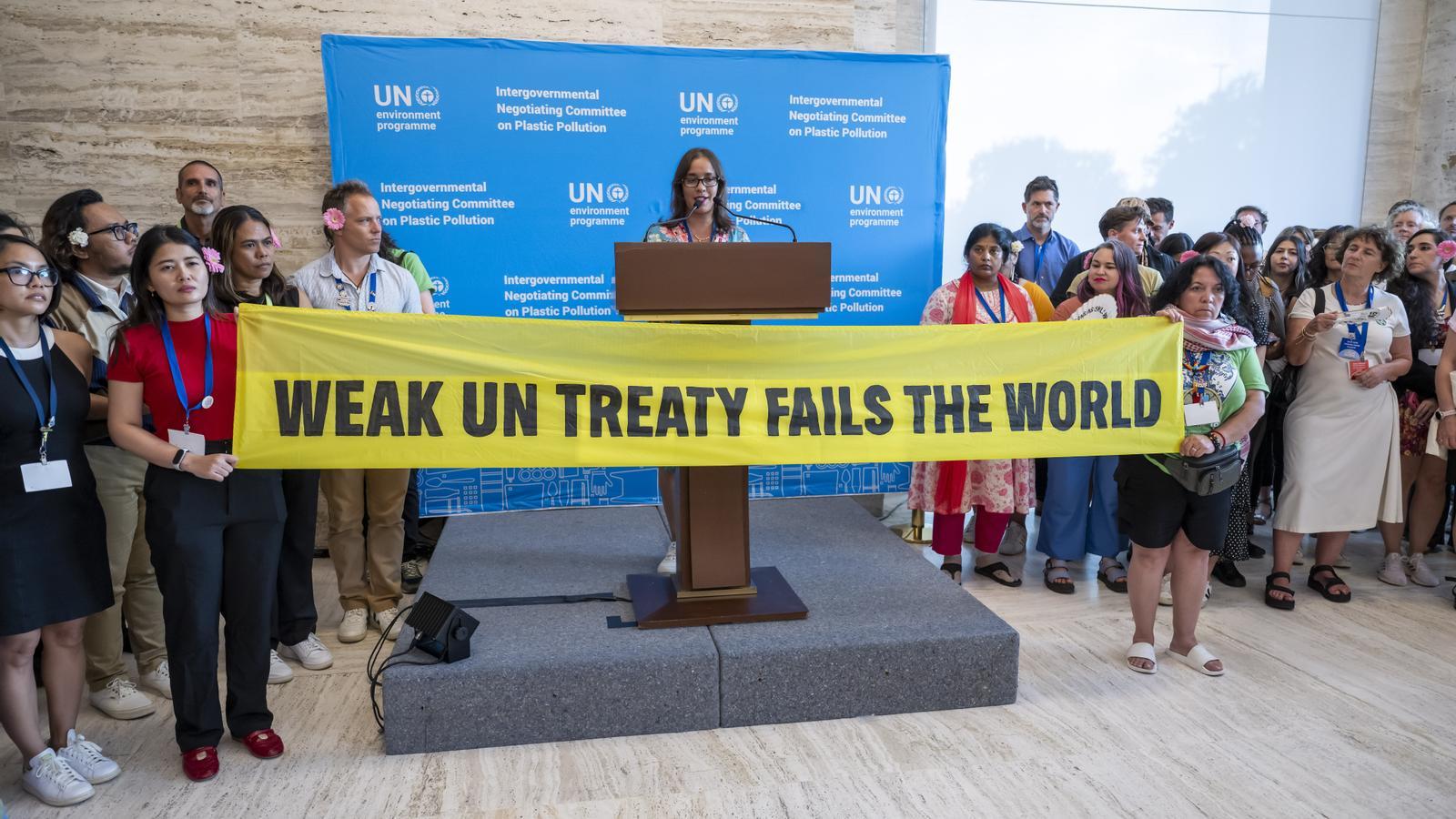Those responsible for the failure of the summit against plastics
The widespread rejection of a watered-down agreement advocated by pro-oil countries – which eliminated mandatory reductions in plastics production – forces the decision to be postponed indefinitely.


BarcelonaThe International negotiations to approve a Global Plastics Treaty They have failed again, for the second time. The nearly 200 countries meeting in Geneva since August 5 have been unable to reach an agreement, as It happened at last year's summit in Busan, South Korea.The deadline for reaching an agreement technically ended at midnight on Thursday. Negotiations dragged on until early Friday morning, following widespread revolt against the latest draft agreement, released Wednesday, which directly eliminated all the key points, especially the imposition of a reduction in plastics production, yielding to pressure from the group of oil-producing countries, led by the group supporting the United States. These latter countries are truly responsible for the failure.
Early Friday morning, the president of the UN negotiating body published a new draft proposal that was identical to the one that emerged from Busan, meaning the negotiations are back to square one. The text was rejected and the meeting was closed, but it was decided that this text would be used as a basis for further negotiations. It remains to be decided – it will be done in the coming weeks – when the next summit will be convened to try (for the third time) to approve a treaty to curb the scourge of plastic pollution. that chokes the oceans and threatens public health.
Approval by "consensus" means that there can be no opposition, which makes an agreement extremely difficult when there are nearly 200 parties involved. French President Emmanuel Macron himself had recently called on the governments meeting in Geneva to "rise to the health and environmental urgency caused by plastics." "What are we waiting for to act? The global treaty against plastic pollution is our opportunity to change things. But the lack of ambition in the text presented yesterday at the United Nations is unacceptable," Macron told X just on Thursday night, when negotiators were making a last-ditch effort.
The changes to the text have outraged most countries
The text unacceptable to Macron, and to an overwhelming majority of the world's countries, was the one made public on Wednesday. The initial drafts of the Geneva summit had managed to include an obligation for signatory countries to reduce or prohibit (if possible) the production, export, or import of plastics that could end up on public roads or that could pose a risk to human health and the environment. They also committed to reducing or prohibiting the production of plastics containing harmful chemicals, including lead and cadmium, or that are difficult to recycle or reuse—that is, single-use plastics. An annex had even been added to the treaty listing a series of plastic products (spoons or straws, plastic chopsticks, and ear sticks, among others) that were to be phased out.
But Ecuadorian Ambassador Luis Vayas, who is leading the negotiations, presented a new final text on Wednesday that eliminated all of this, sparking a furious reaction from NGO observers and dozens of governments present at the summit, including nearly all those in the Global South and the European Union. The new text had succumbed to pressure from the group of oil-producing countries, led by Saudi Arabia, Iran, Russia, and the United States, which have long been pushing for the treaty to not impose any reduction in plastics production.
"The new president's text ridicules a three-year consultative process that showed broad support for an ambitious plastics treaty that would address the entire plastics lifecycle, including production," denounced the Center for International Environmental Law (CIEL), adding: "This is... demands from petrochemical states and the industry with weak, voluntary measures that guarantee that we continue producing plastic at increasing levels indefinitely, failing to safeguard human health, endangering the environment and condemning future generations."
Ultimately, however, the pressure from plastic producers and those of the countries calling for an ambitious binding treaty (more than 100) could not be reconciled, and Vayas has presented as a new proposal the text with which he had started the Geneva negotiations. A text that also does not impose a reduction in plastic production, but does admit that current production levels are "unsustainable." A draft opposed by oil-producing countries, but also by the majority, who consider it still too tepid. It was rejected by a total of 184 countries, in yet another failure of international diplomacy. However, many governments, such as India and China, and even the EU, see it as a good starting point for further negotiations, since at least it doesn't take the setback that the previous draft entailed. A kick in the pants.
